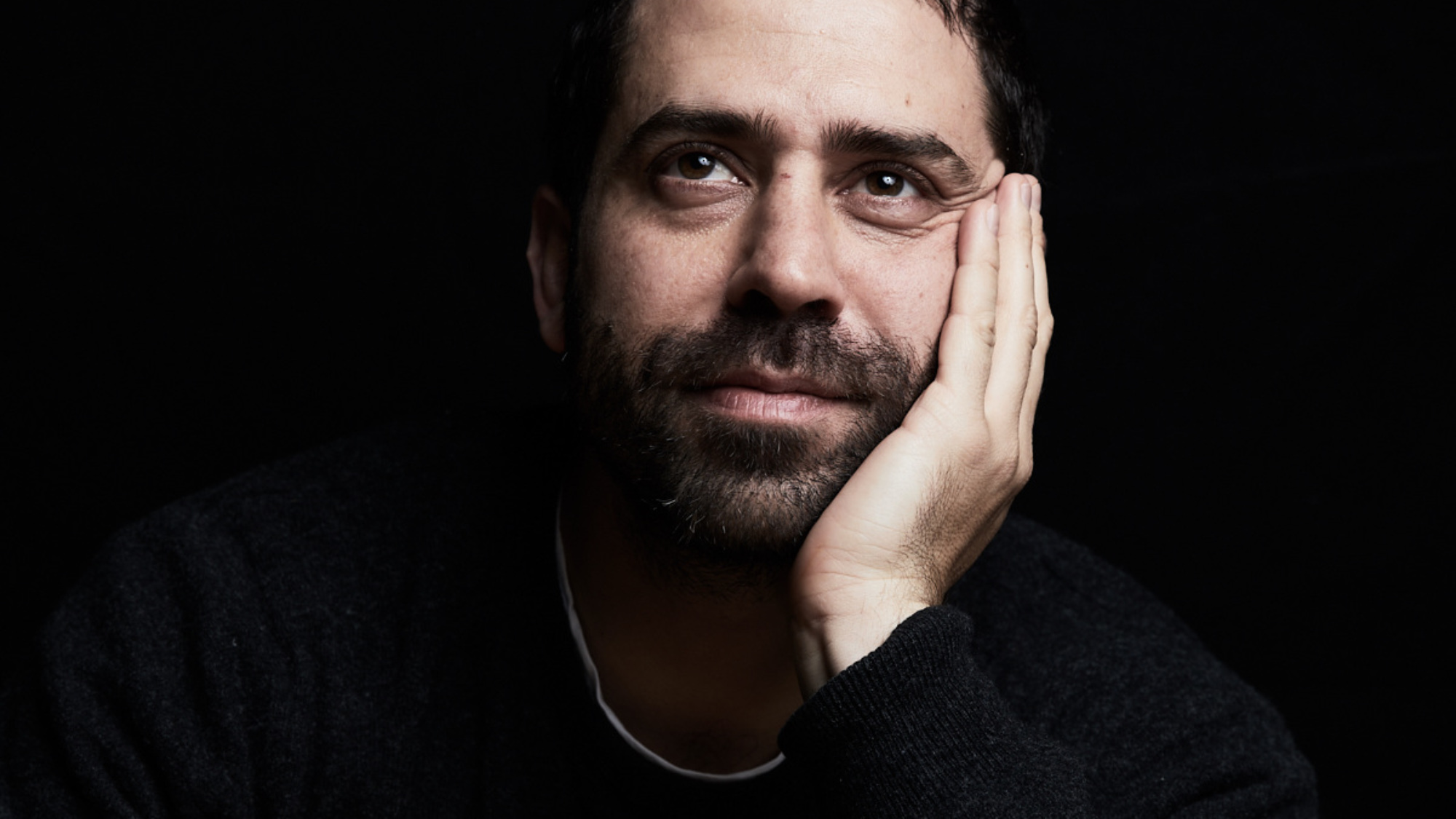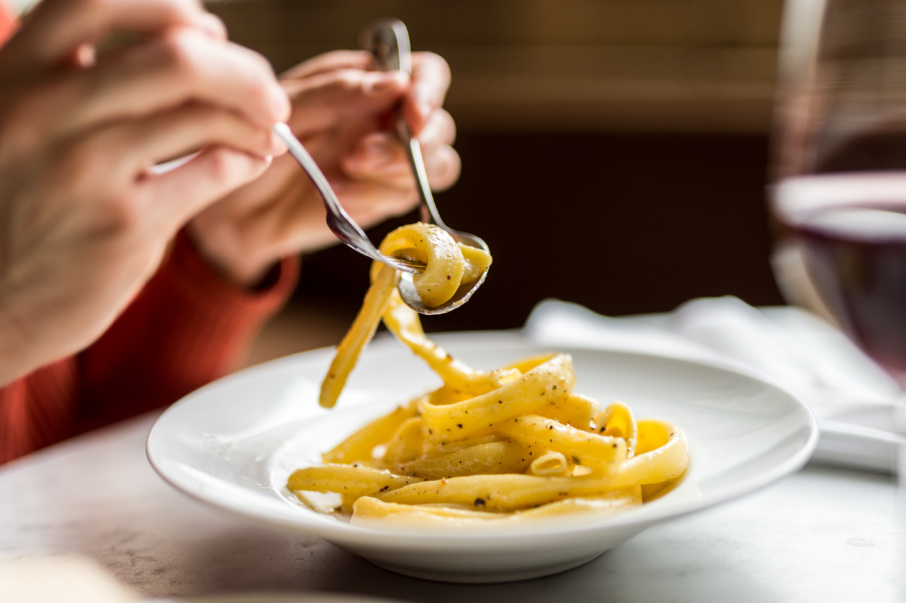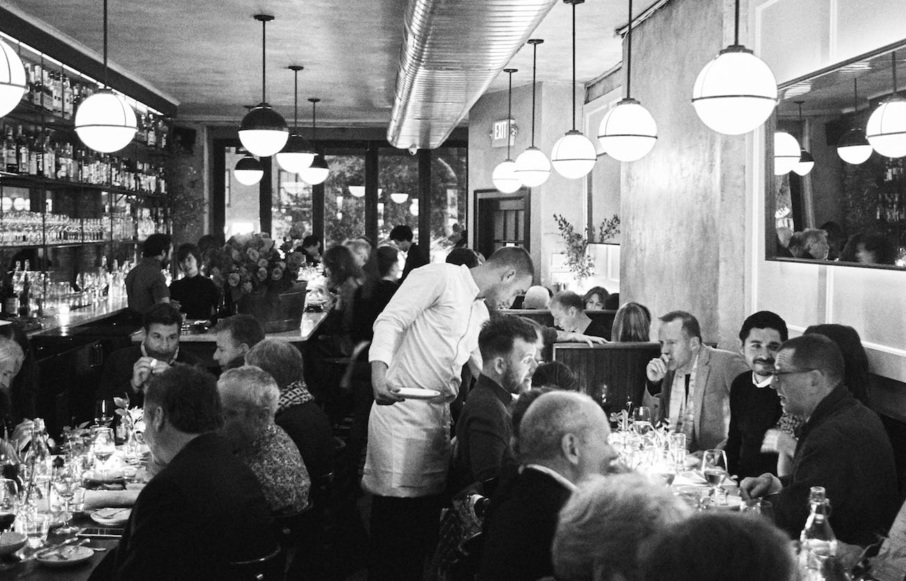Altro Paradiso
Hudson Square, SoHo
Close

Published:
Ignacio Mattos doesn’t know if his three New York City restaurants — Estela, Altro Paradiso, and Flora Bar — will be able to survive the coronavirus pandemic.
“I actually don’t know,” he said. “It’s absolutely uncertain. But it’s my duty to do everything within my ability to make sure those places continue to operate and provide for the community and to our staff.”
As a chef, Uruguayan-born Mattos is known for taking the familiar and fashioning it into something wholly new and often, unexpected. His cooking draws from a variety of influences: years spent on his grandfather’s farm in Montevideo, growing up with his Italian grandmother’s cooking, and mentorships under chefs like Judy Rodgers (Zuni Cafe), Alice Waters (Chez Panisse), and Argentinian barbecue master Francis Mallman.
Estela opened in 2013 to critical success. Altro Paradiso and Flora Bar followed in 2016.
Since those dining rooms closed in March, Mattos has been keeping busy. He still visits at least one, if not more, of his restaurants every day. The daily life of a restaurant, even during a pandemic and even without diners, cooks, or servers, continues. Sidewalks need sweeping. Refrigerators and plumbing problems need fixing. Rents and insurance premiums are still due.
In the weeks after the shutdown, he and his team fed employees. They’ve also been cooking meals for first responders through World Central Kitchen.
Throughout, Mattos is still negotiating the rents for his leases.
“We got the PPP (Paycheck Protection Program loan), but it’s simply a patch,” he said. “It helps, it makes a little bit of sense, but it’s literally a patch.” As for the rent, he said, “We will find out where we can land on.”
Mattos is also thinking about what his restaurants will look like — if he manages to reopen them, that is — and what role they’ll continue to play in the broader community.

It wasn’t until mid-May that Mattos reopened Altro Paradiso for takeout and delivery, primarily because he wanted to provide jobs for the most vulnerable members of his staff, and also so the restaurant could reconnect with guests.
Now, every Wednesday, diners can order to-go boxes and wine bundles. On weekends, regulars can stop by for burgers or cocktails, and from Thursdays to Sundays, they can place Caviar orders for handmade candele or strozzapretti.
“Financially, it doesn’t make any sense, but it doesn’t have to do with making sense, financially. It’s a tough business to begin with. It’s providing a service. It’s essential. We provide some kind of service and normalcy to our community.”
Often, however, Mattos finds himself at a loss to comprehend how a country like the U.S., in many ways, still feels so unprepared for, or frankly, lost when it comes to dealing with something like a pandemic. Or why it is that the restaurant industry itself can be so inequitable.
“People should be able to make a fair amount of money and people in this industry should be working reasonable hours as well; they should have shelter,” he said. “It’s just very difficult to wrap my head around the fact that you don’t have any basic safety provided by your government.” The lack of guidelines for how to deal with COVID-19, he said, is particularly worrisome.
He’s also thought about what’s happening culturally, especially given the protests for racial justice in the wake of George Floyd’s murder at the hands of the police.
“This country is so divided,” he said. “There’s a lot of anger. There’s a pain here that we have to acknowledge. It can’t be forgotten. I think it’s refreshing that people are mobilizing and voicing themselves and taking action for 300 years of wounds. Things have to change.”

Mattos also wonders exactly who will be living in New York City after the pandemic ends. Already, as multiple news outlets have reported, wealthier city dwellers fled New York at the height of the outbreak, and many other New Yorkers are now reassessing whether they still want to live here.
If and when restaurant dining resumes in New York, Mattos is sure of one thing: being committed to safety. Even before the shutdown, he’d already made changes to meal services, changing plate-ups for shared dishes, and instructing servers to minimize contact with diners.
Another thing he’s contemplating is what to charge guests. Mattos has historically wanted to keep his menu prices more accessible, but with limited seating capacity and rising rents, he’s acknowledged prices will likely increase and menus will likely be smaller to reduce inventory and waste.
“It’s essential that all of us, operators, chefs, and the entire industry, come to an agreement on how important it is to make our guests and clientele aware of what it takes to run a restaurant, and why the prices are what they are,” he said.
Above all, however, he said, “I just want diners to know we want to make them happy. We want to provide them the best experiences possible.”
Deanna Ting is a Resy staff writer. Follow her on Instagram and Twitter. Follow @Resy, too.